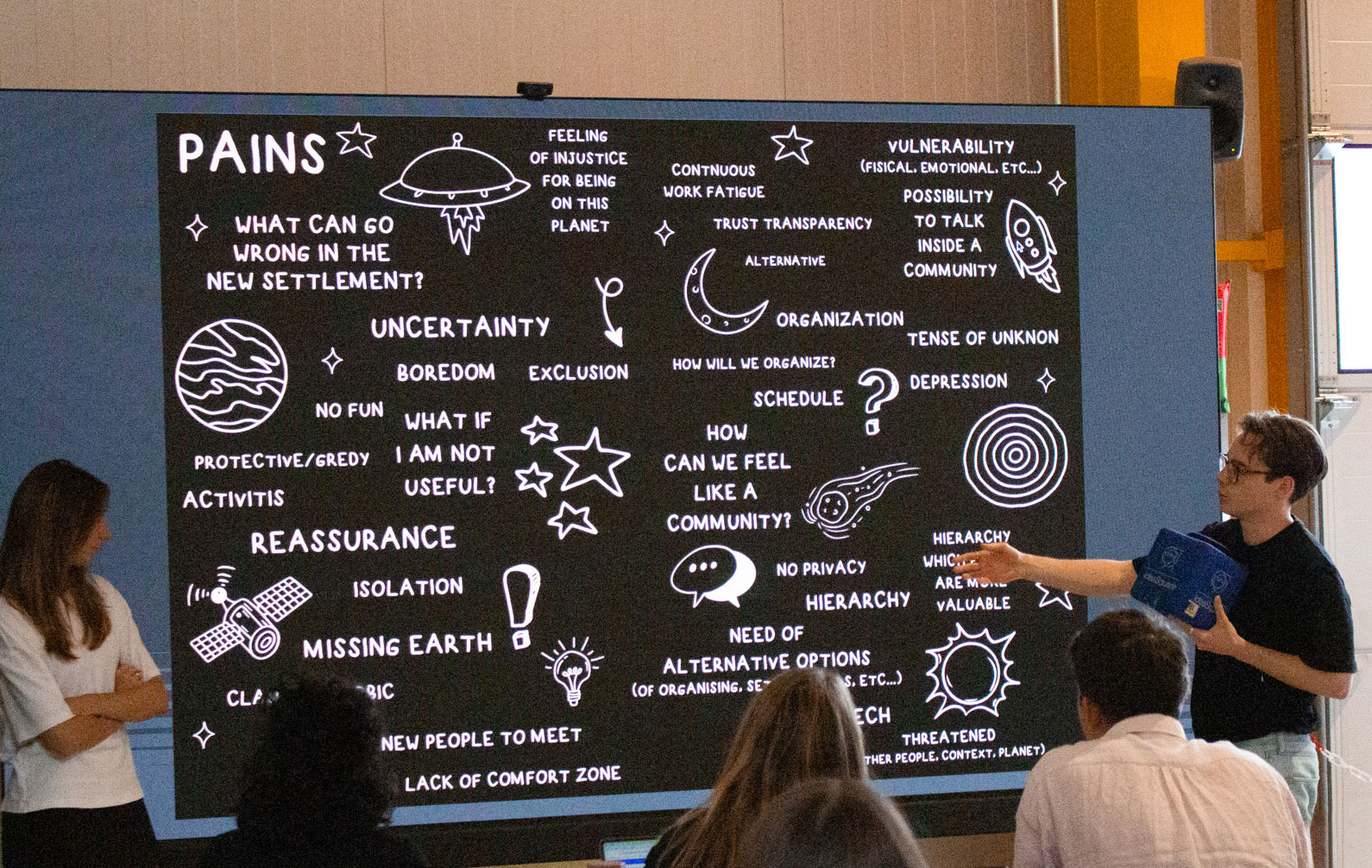Have you ever wondered what it would be like to build a brand new world on an exoplanet? Students have the opportunity to do exactly that with IdeaSquare Planet (i2Planet), a novel teaching methodology designed to encourage creativity and foster the development of systems.
IdeaSquare, the innovation space at CERN, has developed the i2Planet programme in connection with the UN Sustainable Development Goals. It starts off with students partaking in a scenario in which humans have to establish their existence on a new “planet Y”. The students, who have been split into interdisciplinary teams, have to solve specific challenges for their settlements. The second half of the programme brings them back to our home planet, where the teams apply their ideas to a real-world context, focusing on current challenges, such as droughts and accessible healthcare.
The goal is purely educational: preparing students for their future roles as changemakers. Through the programme, the students are equipped with the skills to tackle complex challenges under high uncertainty, make informed decisions and assumptions and develop fast and complex decision-making skills.
With 255 students having taken part in 13 pilot programmes over the last two years, i2Planet is now a flagship programme at IdeaSquare. In this period, students were able to come up with innovative ideas to address current challenges. For example, an interdisciplinary team made up of engineers, lawyers, designers, physicists, business managers and many others had an innovative idea to tackle plastic pollution: cultivating plastic-eating bacteria to get rid of plastic waste. During the pilot programme, sustainability was not the only issue considered by the students who took part. Other teams had original proposals on how to deal with law enforcement and how to provide clean water, preventing droughts by humidifying the ecosystem using lianas.
I2Planet is open to universities across Europe and beyond and is designed for students at master’s level. If you are an educator interested in participating in the programme, please contact idea.square@cern.ch.

